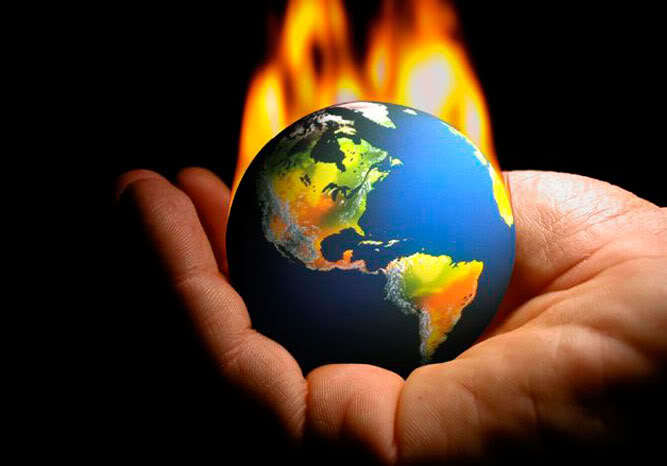Canada 2020 climate change panel an exercise in propaganda
Imagine that a panel discussion entitled “How to attack Kazakhstan to destroy their nuclear weapons” was held at a prestigious hotel in Canada’s capital. Coordinated by a hawkish right-wing think tank and chaired by an intellectual fellow traveler, the hypothetical panel consisted of five strategic experts who rigidly supported the notion that Kazakhstan still has nuclear weapons and are planning to use them against their neighbors. Discussion focused entirely on the best ways to attack Kazakhstan to disarm them ‘before it was too late’:
- Should we use air power or land forces?
- Should the attack be led by the UN or NATO?
- Should only conventional forces be used or would a nuclear strike be justified?
- How would Kazakhstan be ruled after the war?
No participant in the imaginary panel bothered to consider:
- The possibility that Kazakhstan may no longer have nuclear weapons*;
- Whether Kazakhstan had any intension of developing such weapons;
- Whether they had the technology and resources to develop them;
- The likelihood that Kazakhstan would attack anyone even if they did have nuclear weapons.
*Note: according the USAF Air University, “Kazakhstan had returned to Russia all the strategic nuclear warheads on its territory by April 1995. Kazakhstan does not possess, nor can it afford to acquire, the infrastructure needed to maintain and operate a nuclear force.”
And, of course, moderators of the imaginary Kazakhstan panel censored out questions from the audience that dared ask about any of these obvious, and exceptionally important, issues. This meeting was for true believers, only.
How would mainstream media cover such an event? Might they label speakers hot-headed and dangerous? Might the panel be dismissed as obvious propaganda based on beliefs that were clearly wrong? Might reporters point out that the meeting was hopelessly biased because it considered no alternative points of view or allowed questions about the underlying premise that Kazakhstan had nuclear weapons and were intent on acting belligerently?
Of course, they would. Presenters and the think tank organizers would be condemned by media who would, justifiably, dismiss the event as crazy.
Nevertheless, when an equally biased and unsubstantiated meeting was held yesterday in the real world, Canada’s “newspaper of record” gave them a free pass.
Here is what happened:
On Wednesday at Ottawa’s Château Laurier Hotel the group Canada 2020 hosted a panel discussion entitled “How to sell carbon pricing to Canadians“. With former CBC journalist Don Newman acting as host, the panelists included:
- The Hon. Jean Charest, former Premier of Quebec
- Kathryn Harrison, Professor of Political Science, University of British Columbia
- Elizabeth May, M.P., Leader of the Green Party of Canada
- Eric Newell, Chair of Alberta’s Climate Change and Emissions Management Corporation
- Bob Inglis, former U.S. Republican Congressman and Executive Director of the Energy and Enterprise Initiative of George Mason University
Much like our fictitious Kazakhstan panel, the speakers in the Canada 2020 event discussed various ‘weapons’—in this case economic, policy, technological and public relations—to compel Canadians to cut “carbon” to solve the supposed climate crisis. There was zero debate, or even discussion, about the actual evidence for a global climate crisis or whether humanity’s emissions of carbon dioxide (CO2) are in any way responsible. Throughout the event, all participants, even Newman, wrongly labeled CO2 as “carbon”, at times even calling it “pollution”. The very existence of alternative science points of view about the causes of climate change was totally ignored.
Viewers got a preview of the biased nature of the event when they read in the advertisement on Canada 2020’s Webpage:
“The magnitude of the carbon crisis is such that every possible tool needs to be available to policy makers as they craft their response.”
For those in the alternative universe as represented by Wednesday’s panel:
- There has been no cessation in global warming for the past 17 years ago (even though there has).
- Global warming has caused a recent increase in the severity and frequency of extreme weather events in Canada and across the world (even though there has been no such rise–we are near a 30-year low in Accumulated Cyclone (hurricanes in the North Atlantic) Energy, for example).
- Forecasts of future climate change are reliable (even though no model forecast a 17-year pause in global warming and Environment Canada’s national seasonal forecasts are no more accurate than a throw of dice).
- All reputable scientists agree that we are causing a climate change crisis with our “carbon emissions” (even though, as demonstrated over the past two week by Reuters, The Economist and The Telegraph (London, UK) more and more climate scientists who used to believe in the climate scare are having second thoughts or changing sides entirely).
- It is better to spend billions of dollars retooling our energy infrastructure to quickly expand use of inadaquate wind power and other ‘green’ sources, thereby risking life-threatening electricity shortages, than to simply prepare for and adapt to future climate change.
Taken literally, the excited statement in the Canada 2020 ad was actually correct, but not for reasons organizers envisioned. If policy makers really want to spend massive amounts of money on CO2 reduction, even as the public come to understand that “The magnitude of the carbon crisis” is likely to be very small, then, yes, they will have to use “every possible tool” to “craft their response.” I don’t envy their speech writers.
Watching the two hour talkfest on line I wondered, how could panelists believe viewers would be swayed by their advocacy if they pretend that credible alternative points of view on the science do not even exist? Most of the public have seen and heard from at least some leading experts on the other side of the discussion and know about the intense debate concerning climate change causes. What else are they not telling us, the public would naturally wonder.
Since the organizers were taking questions via Twitter to be directed live to panelists, I tweeted my question:
“#can2020 – question: how can you expect the public to take your concerns seriously when you deny uncertainty in the climate science?”
The response was immediate. Ignoring May’s assertion that we need to “have a grown up conversation about climate change about the threats it imposes on Canada”, I was instantly labeled a dinosaur by fellow Tweeters, generally insulted and told to go away. My question was clearly beyond the pale for the august group of climate campaigners on stage and so was censored out by panel organizers.
Don’t expect mainstream media to point out the serious flaws in this event. Already, the Globe and Mail’s report is simply cheerleading, making no reference to the panel’s quasi-religious nature.
What Canada 2020 panelists and organizers seem to not understand is that all planning for the future involves sensible risk assessment. This includes considering, not just the possible impacts of climate change, but also the likelihood of them actually coming about. And that means dealing with uncertainties. Lecturing Canadians about fictional global warming certainty when future climate states are actually unknown, does us all a disservice and, in the long run will sway no one not already committed to the scare.
Seen in that light, perhaps the propagandic nature of Canada 2020’s “How to sell carbon pricing to Canadians” was a blessing in disguise. After all, the last thing we want is for anyone to take attack-Kazakhstan-like activists seriously.
[First published at New.Ideas@Frontier]





